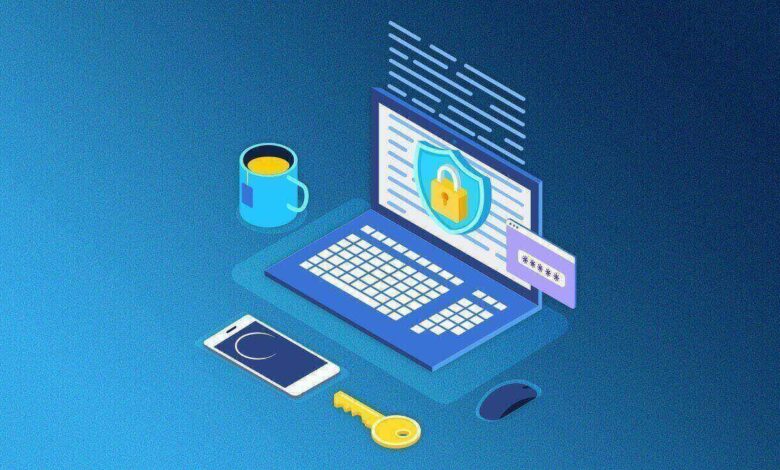Securing Your Digital Data: VPNs and High-Level Computer Protection

Protecting your personal and sensitive data has become crucial in today’s digital era, as our lives are becoming more and more entangled with the virtual world. There has never been a greater need for effective cyber security safeguards as we surf the enormous internet. The Virtual Private Network, or VPN, is one crucial weapon in this armory. This technology delivers top-notch computer security, protecting your digital information and giving you peace of mind in a constantly changing online environment.
The Digital Landscape: A Breeding Ground for Threats
Our computers have evolved into essential hubs for communication, work, entertainment, and a host of other activities. While this interconnectedness has revolutionized our lives, it has also exposed us to a plethora of digital threats. From cybercriminals looking to steal your personal information to data-hungry advertisers seeking to track your online behavior, the digital landscape is fraught with dangers.
Even the most vigilant computer users may unwittingly expose their data to potential threats. The moment you connect to the internet, your computer’s vulnerabilities are laid bare, and this is where VPNs come into play as a high-level protector.
What Exactly is a VPN?
A VPN, or Virtual Private Network, is a technology that establishes a secure, encrypted connection between your computer and a remote server. This server can be located anywhere in the world, and when you connect to it, your internet traffic is routed through this secure tunnel, making it significantly more challenging for third parties to intercept or access your data.
In essence, a VPN acts as a virtual cloak, concealing your digital identity and making it much more challenging for cybercriminals and prying eyes to infiltrate your digital world. This protection is especially crucial when using unsecured public Wi-Fi networks, which are known hotspots for cyber attacks.
The Benefits of VPNs for High-Level Computer Protection
1. Data Encryption:
One of the core features of a VPN is data encryption. All data transmitted between your computer and the VPN server is scrambled, ensuring that even if someone were to intercept it, they would only see a jumble of characters. This encryption extends to your online activities, be it browsing, email, or online banking, effectively safeguarding your personal and financial data.
2. Anonymity and Privacy:
VPNs allow you to surf the internet with a high degree of anonymity. When you connect to a VPN server, your IP address is hidden, and you appear to be browsing from the server’s location. This makes it challenging for websites and online services to track your location, and it can also help circumvent geo-restrictions.
3. Evading Censorship and Geo-Restrictions:
In some parts of the world, internet censorship is a reality. VPNs can be an invaluable tool for bypassing government-imposed restrictions and accessing blocked content. Furthermore, they allow you to access region-locked content on streaming platforms, expanding your entertainment options.
4. Protection on Public Wi-Fi Networks:
Public Wi-Fi networks, while convenient, are often not secure. Cybercriminals can easily set up fake Wi-Fi hotspots to intercept your data. When you connect to a VPN on a public network, your data remains protected, as it is encrypted before leaving your computer.
5. Defense Against Hackers:
With cyberattacks becoming increasingly sophisticated, VPNs provide an extra layer of security against hackers and malicious software. Your VPN connection acts as a shield, making it significantly harder for hackers to exploit vulnerabilities in your system.
Selecting the VPN
Find the best VPN service reviews is a critical step in securing your digital data. The market is flooded with options, and not all VPN services are created equal. Here are some factors to consider when making your selection:
1. Security Features:
Look for a VPN that offers strong encryption protocols, a no-logs policy, and a kill switch. These features ensure that your data remains private and protected.
2. Server Locations:
The more server locations a VPN offers, the more options you have for masking your online identity and bypassing geo-restrictions.
3. Speed and Bandwidth:
Check the VPN’s speed and bandwidth capabilities to ensure it won’t slow down your internet connection when in use.
4. User-Friendly Interface:
A user-friendly interface makes it easier to set up and use the VPN on your computer, regardless of your technical expertise.
5. Customer Support:
Prompt and knowledgeable customer support can be a lifesaver if you encounter any issues with your VPN.
Putting It into Practice
To reap the benefits of a VPN, you’ll need to follow a few simple steps:
- Choose a VPN Service: Do your research and select a reputable VPN service that aligns with your needs.
- Install the VPN Software: Download and install the VPN software on your computer or device.
- Connect to a Server: Launch the VPN software and connect to a server location of your choice.
- Browse Securely: With the VPN active, your internet traffic is now encrypted and routed through the selected server, keeping your data safe.
Final Thoughts
As we navigate the complexities of our digital lives, it’s essential to remember that the internet is not always a safe place. High-level computer protection is paramount, and a VPN can be a robust tool in your cyber security arsenal. It provides encryption, anonymity, and a shield against various online threats.
In a world where personal privacy is increasingly challenged, a VPN is a beacon of hope for those who wish to maintain control over their digital data. By investing in a reputable VPN service and implementing best practices, you can secure your digital data, protect your privacy, and embrace the digital world with confidence.





